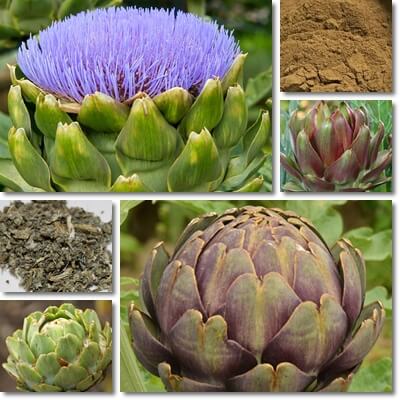Artichoke is an anti-diabetic food, low-glycemic, with minimal effects on blood sugar, and a source of several essential nutrients with benefits specifically for diabetes. But what about artichoke extract for diabetes?
Studies show artichoke extract has a quantifiable anti-diabetic action in the form of blood sugar, blood cholesterol and blood pressure-lowering properties and anti-obesity effects that work synergistically towards achieving metabolic management, a key aspect of diabetes control and prevention.
What is diabetes?
Diabetes, formally known as diabetes mellitus, is a disorder of the metabolism characterized by persistent higher than normal levels of sugar (glucose) in the bloodstream and poor glycemic control.
The main forms of diabetes are type-2 diabetes, type-1 diabetes and gestational diabetes. Diabetes as a metabolic disorder is associated with high blood cholesterol, high blood pressure, weight gain with central obesity (excess fat tissue around the waist), nerve damage and eye damage that build up to irreversible tissue and organ damage and side effects and complications such as such as loss of vision, poor wound healing leading to amputations, kidney damage and heart disease with increased risks of cardiovascular events such as stroke.

What is artichoke extract?
Artichoke extract is a dietary supplement made from the globe artichoke (scientific name: Cynara cardunculus scolymus), a culinary vegetable and medicinal plant with varied therapeutic properties and medicinal applications. Artichoke extract can be made from any part of the artichoke plant.
The most common type of artichoke extract is artichoke leaf extract made exclusively from artichoke leaves or bracts. Other plant parts used may include artichoke stems, flowering heads, receptacle, even root parts, with the artichoke hearts being saved for consumption as culinary vegetables.
Artichoke extract is made from concentrated plant material, that is, it contains higher amounts of biologically active chemicals occurring naturally in the plant. As a result, it is purported to hold quantifiable health benefits including, but not limited to, benefits for weight loss, high cholesterol, high blood pressure and diabetes.
The various phenolics found in artichoke extract that are behind its health effects include Quercetin, Apigenin-7-glucoside, Chlorogenic acid, Narirutin, Luteolin, Cynarin, Silymarin and more.

Benefits of artichoke extract for diabetes
How is artichoke extract good for diabetes? The pathway through which artichoke extract delivers its anti-diabetic benefits is metabolic management.
The dietary supplement has demonstrated a diverse range of therapeutic effects, including:
- Anti-hyperglycemic action, lowering high blood sugar levels
- Reduction of several diabetes markers
- Anti-hyperlipidemic action, lowering LDL, VLDL, triglyceride cholesterol levels
- Antihypertensive action, lowering high blood pressure numbers
- Anti-obesity action: appetite control, reduced hunger, weight management
- Antioxidant and anti-inflammatory action, limiting free radical-induced damage
Note: Diabetes is a complex, multifaceted metabolic disorder. To limit damage, reduce complications and even reverse the condition (type 2 diabetes), it is imperative to eat a clean diet that provides nutritionally-dense foods within a reasonable caloric intake, and lead a healthy, active lifestyle, with a focus on maintaining a healthy weight. Dietary supplements such as artichoke extract can support efforts to manage the condition, but will not offset the adverse effects of a bad diet or lifestyle.
Blood sugar lowering benefits
Artichoke leaf extract has scientifically proven blood sugar lowering benefits (source 1, source 2).
The plant extract has been shown to reduce fasting blood glucose levels, post-meal blood glucose and markers of insulin resistance, in addition to LDL cholesterol and triglyceride levels, as well as improve markers of glycemic control and HDL cholesterol levels.
Lowers several markers of diabetic disease
Supplementation with artichoke extract has been shown to help decrease fasting blood glucose (by 9.6%), Homeostatic Metabolic Assessment, a marker of insulin resistance (by 11.7%), glycosylated haemoglobin or hemoglobin to which glucose is bound which is an assessment of glycemic control (reduced by 2.3%), A1c-Derived Average Glucose, or ADAG (reduced by 3.1%) and pattern of blood lipids (fats) (study).
By contributing to the management of these metabolic parameters, artichoke extract contributes to diabetes control.
Benefits for weight management
Excess body weight ranging from being overweight to obese is a trigger for diabetes and a significant cause for complications. Artichoke extract helps improve body mass index (BMI) via anti-hyperglycemic and anti-hypolipidemic activities as well as prebiotic, bifidogenic effects resulting in anti-obesity benefits. Artichoke extract also helps with weight management in overweight individuals via improved appetite control and reduced hunger, further contributing to benefits for diabetes management.
Find out more about artichoke extract for weight loss.
Benefits for high blood cholesterol
High blood cholesterol is a common complication associated with diabetes. Studies demonstrated artichoke dry extract at 1800 mg per day for 6 weeks lowered total cholesterol by 18.5% and LDL cholesterol by 22.9%, with no adverse effects. Another study showed artichoke leaf extract reduces plasma cholesterol in otherwise healthy hypercholesterolemic adults by an average of 4.2% after 12 weeks of supplementation with 1280 mg of of the extract. Discover more benefits of artichoke extract for high cholesterol.
Benefits for high blood pressure
High blood pressure is a serious complication associated with diabetes and a source of life-threatening cardiovascular events such as stroke. Studies reveal luteolin, one of the main bioactive components in artichoke extract, activates enzymatic reactions that trigger the production of nitric oxide.
Nitric oxide acts as a cell messenger, signaling the smooth muscles of blood vessels to relax and dilate. This, in turn, improves blood flow and causes blood pressure numbers to drop achieving anti-hypertensive effects that benefit diabetes.
Find out more about artichoke extract for high blood pressure.
Anti-inflammatory and antioxidant benefits
Oxidative stress and associated cell and DNA damage cause inflammation and contribute to complications in diabetes. According to research dating back to 2009, the flavonoid antioxidant luteolin found in artichokes and artichoke extract, and a host of other foods and plant preparations, exhibits significant in vitro and in vivo anti-inflammatory activity.
Formulations containing luteolin demonstrated excellent therapeutic effects against inflammation-associated diseases. Research also revealed artichoke extract has significant anti-oxidative activity demonstrated by an increase of CAT, SOD and GSH activities in liver, kidney and pancreas of diabetic rats.
